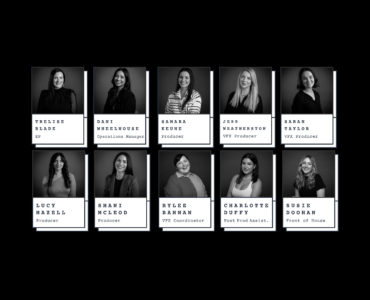/LOVE (ISLAND) IN A PANDEMIC
In a major breakthrough for reality TV production, Cutting Edge Technical Services [CETS] helped ITV America’s ITV Entertainment deliver the second season of Love Island (USA) from COVID lockdown.
Love Island, like a lot of productions and events, met many obstacles in 2020. Initially scheduled for production on location in Fiji, pandemic-induced travel restrictions meant the ITV team needed to rethink how and where the show could be produced.
ITV America’s Executive Vice President of Post Operations & Technology Danielle DiStefano oversaw post production on the project from conception to delivery and says every department faced “huge challenges” in creating and delivering the show during a pandemic.
“Our biggest hurdle was how to enable our teams to work together and deliver shows in a short turnaround, while working remotely,” DiStefano said.
The production made the decision to relocate to Las Vegas, Nevada, occupying a number of spaces at Caesars hotel venues, including the famous Cromwell, Flamingo and Rio casinos.
While production was situated in Las Vegas, the majority of the edit and post production team was in Los Angeles. The challenge of delivering a “quick-turn” show to broadcaster CBS meant that robust systems for remote working had to be put in place to ensure all tight deadlines would be met, no matter what.


Technical Director at CETS Jon Dobson says “it was sink or swim” when creating remote workflows for Love Island.
“Our team had to work out a way to get around the challenges of border closures and restrictions or walk away from the project all together.”
Jon Dobson / Post Production Engineer / Cutting Edge
“Despite not being able to be in the same location, let alone the same room, the entire production and technical team pulled together to deliver an extraordinary result.
“The headline statistics are impressive; 40 hours of programming delivered over 35 days from a total of 59 edit systems.
“What’s even more impressive is that the production, editorial and technical teams were spread out across Las Vegas, Los Angeles, Brisbane, Sydney, London and New York.
This would have been an enormous achievement even without the complexity of the pandemic,” he says.
The CETS team worked closely with ITV America’s post production and IT teams in LA, Las Vegas, New York and London to build the edit systems and robust networks to support remote work in Los Angeles, as well as work from home (WFH) users.


CETS CEO Michael Burton says the Brisbane-based team and ITV America were able to overcome hurdles to make “groundbreaking” changes in the global reality TV industry.
“We managed to decentralise workforces for the first major reality TV project of this type in the current climate, and supported a total of 59 Avid systems and 20 channels of ingest to over 1.3 petabytes of storage.” Mr. Burton says.
“This remote work hadn’t been done before on this scale, or with such tight deadlines,” he says.
DiStefano says that even though teams were spread over the globe, they were able to work closely to deliver for production.
“The Cutting Edge support team is top notch and made sure systems worked 24/7, helping us deliver to our broadcast partner, CBS.” she says.



